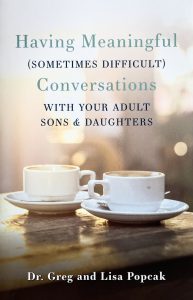
By Dr. Greg Popcak
We all hurt. Suffering is an inescapable part of life. But that doesn’t make our pain any easier to bear, especially when facing the kind of senseless violence that occurred at Robb Elementary in Uvalde, TX, where a lone, teenage shooter killed 2 teachers and 19 children.
Where is God in this? How do we find him? Why did he “let” this happen?
These aren’t easy questions to answer, and the pain, anger, and frustration we feel in the face of evil is normal and natural. The first thing we need to do is resist the temptation to allow our pain to make us respond in pain. Instead, we need to bring our pain to God and ask him to teach us how to respond to it in a way that will glorify him, help us be our best selves, and work for the good of all the people around us.
That said, a lot of the frustration, pain, and confusion we feel in the face of suffering is based on the grossly false assumption that things are supposed to work all the time, and that God has somehow dropped the ball when things aren’t working as we think they should. But here’s the truth: There’s nothing about the Christian view of the world that suggests this assumption is correct.
Yes, in the beginning, before the Fall, God ordained creation to exist in perfect balance. But as the story goes, this balance was catastrophically demolished when Adam and Eve committed the first sin. Because of this, in the Christian worldview, everything is actually supposed to be awful all the time. Original sin made the world a warzone, and misery is meant to be our natural state of being. If anything else exists — if there is anything good in this world at all — it is only because God is unfathomably merciful and, despite our ongoing efforts to keep wrecking everything, he is intent on creating order out of the chaos, peace out of the turmoil, joy out of the misery, life out of death. “Behold, I make all things new!” (Rv 21:5). “Good” is God’s miraculous, merciful response to suffering.
The fact that we take for granted how good things usually are and presumptuously assume that they should always be this good is a testament to how astoundingly merciful God actually is. It is proof of what I call “the mystery of good” — that is, the mystery of how (and why) God literally moves heaven and earth every single moment of every day to care for us, provide for us and tend to our wounds despite the fact that we are living in a warzone of our own making, a warzone he never intended for us to live in, and that he is doing everything he can to deliver us from, including sending his own Son to lead us through the minefields and back to the green pastures where he gives us repose (cf., Ps 23).
Although it can be tremendously hard to find God when we’re in pain, we discover that God is imminently, superabundantly, omnipresent in our experience of suffering.
- Imminent: God is immediately present in our pain. He doesn’t hesitate to respond to us. Before we even call on him, he is running to tend to our wounds (cf., Ps 139:4).
- Superabundant: No matter the depth of our pain, no matter the horrific nature of our suffering, God’s grace is greater. If we ask for his grace, God will enable us to respond to our suffering in ways that are heroic, healing and heralding of the good news that Christ has conquered and we can be victorious through his grace.
- Omnipresent: Nothing can separate us from his presence. No suffering can keep him from us. He stands ready to guide every step we take as we respond to our suffering. If we ask his help and trust his grace, he will lead us through every trial.
It isn’t that God is present when we aren’t suffering and absent when we are. God is already imminently and superabundantly omnipresent in very first moments of our experience of suffering. I remind my clients that God’s presence in our pain is evidenced in our capacity to display any of the following four supernatural abilities.
-
- The knowledge that there should be more than this.
- The belief that I could respond in a way that would allow me to make more of this.
- The drive to be whole again in spite of this.
- The will to heal and grow stronger somehow in the face of this.
None of these abilities come naturally to us. The natural human response to suffering is to run until we can’t run anymore and then give up and die. If you’re inspired to do any of the above four things in the face of your pain, it’s because God is already moving in you, saying, “Do not fear: I am with you … I will uphold you with my victorious right hand” (Is 41:10).
When you find yourself in pain, when you’re forced to stare evil in the face, call to the Lord. Then take his hand and let him lead you to the resurrection that comes after this cross.

















